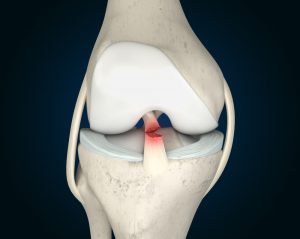What can cause joint pain all over the body?
When someone describes joint pain all over the body this is a concern for us as it is usually a systemic issue. The top issues we immediately think of are Rheumatoid Arthritis (RA) or another inflammatory arthropathy or Fibromyalgia. As Chiropractors there is no evidence we can help with these conditions.
This blog will explain what RA is and how it impacts the body and the process it plays as an autoimmune condition.
We should start by talking about what autoimmune is, essentially this is where the body recognises a cell or part of the body as foreign, for example when you have a virus and feel sick, your body will try to eliminate that virus from your body by recognising it is as foreign.
In RA the body attacks the cartilage within the synovial joint and tries to break it down. This creates a lot of inflammation within the joint and that is why RA joints are hot, boggy and inflamed.
The joints that RA typically affects are:
Fingers-mainly the proximal (closest to knuckle) joint
Toes
Wrists
Knees
Shoulders
Generally, it is the smaller joints in the body but can go to the knees and shoulders also.
What does autoimmune joint pain feel like?
It is often different from person to person (this is not helpful sorry) and depends on length of condition, as well as lifestyle. If you are active, then the pain you feel in autoimmune joint pain is often less because movement can help to reduce some of the inflammation. However, there will be some rheumatoid sufferers saying ‘when I’ve got a flare up the last thing I can do is move’. It is dependent on each case which is why like back pain it is often challenging to manage.
You need to find what works for you, there is not a one size fits all approach to autoimmune joint conditions. You will often need management from GP’s or rheumatologists to help with the inflammation as well.
- Aching: Joint pain can often be described as a constant dull ache that may be worse in the mornings or after periods of not doing activity like sleep or sitting down watching TV.
- Stiffness: Affected joints may feel stiff, especially after periods of rest. Morning stiffness is a typical symptom, where joints feel particularly rigid and difficult to move.
- Swelling and warmth: Inflammation in the joints can cause visible swelling or puffiness. The affected areas may also feel warm to the touch.
- Redness: In some cases, autoimmune joint pain can be accompanied by redness around the affected joints.
- Loss of flexibility: Over time, joints affected by autoimmune disorders may experience a reduced range of motion, making it difficult or painful to perform certain movements.
- Fatigue: Autoimmune joint pain is often associated with general feelings of fatigue and weakness.
Is it normal to have joint pain every day?
It is not normal to have joint pain every day. If you have autoimmune joint pain then this often comes in waves throughout the year, we have clients who have inflammatory joint pain and describe it as weeks or days of bad pain and then nothing for a few months. There is very often no reason as to why the flare ups occur.
If you have more osteoarthritic pain then this can be more consistent, but at a low-level ache over a longer period. You will get flare ups where it is worse than others, for example when you have done a long walk or lifted something, then the osteoarthritic pain can be worse. But generally, it is a low, level, and dull ache.
If you are confused as to why your joint pain is happening, then come in and see us and we can point you in the right direction of who to see next. If it is an osteoarthritic pain then there is work, we can do to help you with this, if we find it is more rheumatic in nature then we can refer you to the right person to help with this.
If you do know someone who wants more advice, please send them our details. You can send them this blog and they can request a free copy of our book which has posture related exercises in it as well. Click here for FREE book.


